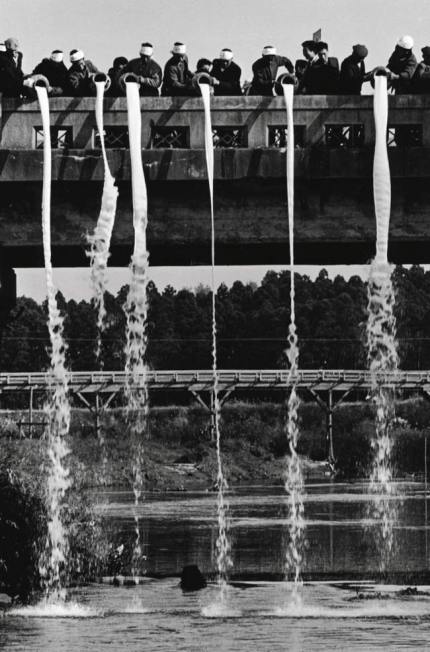Subscribe to ShahidulNews
Today on Earth Day we are celebrating by making promises
But I will not
I will not stop throwing paper on the ground.
I will not stop using plastic bags
I will not go to clean the beaches
I will not stop polluting
I will not do all these things because I am not polluting the world
It is the grown-ups who are dropping bombs
It is the grown-ups who have to stop
One bomb destroys more than all the paper & plastic that I can throw in all my life
It is the grown-ups who should get together and talk to each other
They should solve problems and stop fighting and stop wars
They are making acid rain and a hole in the ozone layer
I will not listen to the grown-ups!
[Student of class five of Karachi High School on Earth Day 1991].
It was in the wee hours of the morning. Propped up in our beanbags Nuzhat and I chatted while Zaheer and Ragni clicked away on their keyboards. I was in Karachi doing a story on Abdul Sattar Edhi, the philanthropist I admired greatly. Nuzhat and I had a lot of catching up to do, and our stories wandered in unplanned directions. We talked of when she and Nafisa Hoodbhoy had started the Peace Committee in Karachi and as she remembered this story her bright eyes welled up. Nuzhat was not the sort of person one could imagine being angry. But as she recalled the words of this little boy, she shook with emotion.
It was a week after they had heard the news of the US dropping a bomb every two minutes on Iraq. They had talked in school of how the world was being destroyed, of how the minds of people were being moulded, of how Pakistanis were looked upon at airports, but how the work of Edhi went unreported. She recalled how at the end of her talk, the chief guest, a woman known for her good work, went up to the boy and quietly told him off. How the prizes went to the other kids who had made presentations that no one could remember.
What can we say to the blind & deaf?
What does education & learning mean?
What should we teach & why do we teach it?
These were questions Nuzhat asked that night. Questions we continue to ask.
As we put together the work for this festival, I have marvelled at the range of statements the artists have made to address ?resistance?. At their modes of expression. At their defiance. To resist, to challenge, to question, to go against the grain, to deliberately choose the untrodden path is a conscious decision. It is a risky route fraught with danger, but a route we must follow, if change is to come.
The festival itself continues to buck the trend. Open air marquees without gates or walls bring rarely seen work to a wider public. Billboards on cycle rickshaws take exhibitions to city spaces that have never known gallery walls. Combining innovative low cost solutions with state of the art technology, video conferences link the virtual with the real, while canvas prints on giant scaffolding scorn the air conditioned confines of exclusive openings. Hand tinted prints rub shoulders with pica droplets on digital media. Fine art, conceptual work, installations, traditional photojournalism, coexist in a strange mix, oblivious to attempts to categorise and label. The future, the present and the past huddle, sometimes uncomfortably, to produce a kaleidoscope of images and woven messages, that question, reflect and celebrate aspects of our existence.
When globalisation has become a euphemism for westernisation, it is this dissolution of borders, this resistance to consumerism, this dream of a world where the might of a few, can be effectively challenged, this belief that tanks and stealth aircraft, and media spin will not subdue an indomitable spirit, that characterises this festival. It is this attempt to subvert, through blogs and handbills and word of mouth, the propaganda machineries that dominate the airwaves, that the artists have taken as their inspiration. The festival is a call to resist, and a declaration of the resistance to come.
Shahidul Alam
5th December 2004

